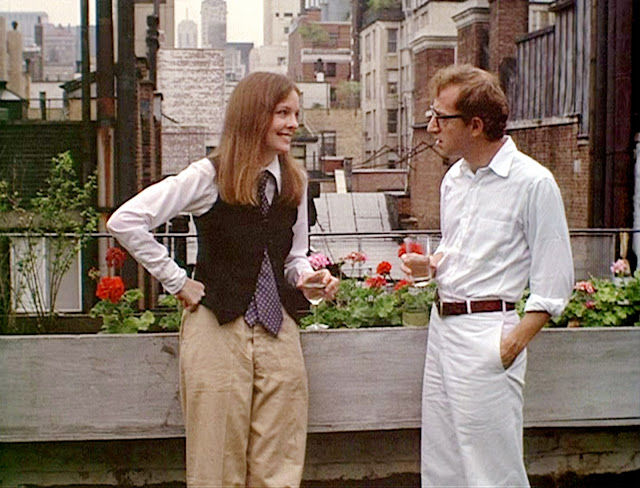The times they are not just changing, they are convulsing
- lydiajulian1
- Oct 13, 2025
- 6 min read
Updated: Oct 14, 2025
It is a week since I tackled the most challenging task of the year. We all know what it is: adjusting all the clocks in a residence when daylight saving/summertime is introduced. It is a straightforward procedure with older clocks. Head to the back of the device and turn the hands. Come the digital age devices, however, comes the drama, especially when resetting oven clocks. For me, achieving the desired goal is a fluky combination of reading an obscure manual five times, whilst watching a patronising You Tube video, and a suitable amount of ranting and self-loathing about my technological incompetence.
Cher sang loudly about her wish to turn back time. Come springtime in the hemispheres we move time forward. We constantly struggle with time. Days and weeks either pass too quickly or drag. The passage of years is either kind or cruel.
It is little more than a month since the US Open concluded. Political and tennis events have galloped and stunned at such a pace since that there has been barely time to comprehend. Another observation about time is seemingly true: nothing happens then everything does.
The tennis world, on balance, has been more predictable than the political, although recent days have provided shocks and surprises. In the Men’s game, Alcaraz won the Tokyo Open and Sinner the China Open; however, neither has triumphed in Shanghai. Sinner suffered a leg injury that forced him to withdraw from the tournament. In his absence Djokovic fainted in the heat and lost his semi-final to a player from Monaco, Valentin Vacherot. Ranked 204 in the world Vacherot is the lowest ranked player to make the final of an ATP 1000 tournament. His opponent will be none other than his cousin, Frenchman Arthur Rinderknech, ranked 54 in the world. Did you know that a person from Monaco is known as a ‘Monegasque’? Overnight, Vacherot rewrote tennis history by winning the title.

Will Sinner be able to defend his title in Melbourne? Will Djokovic come to Melbourne? Time will tell. Thank goodness Sinner will be able to survive as the face of modern Italian communication!

In the Women’s game, Amanda Anisimova, in the absence of Swiatek and Sabalenka won the China Open. Italy, led by Jasmine Paolini won the Billie-Jean King Cup. Team World, led by Andre Agassi won the Rod Laver Cup played in San Francisco. Donald Trump would have been pleased that Team Europe was defeated. Given his refurnishing of the Oval Office in gaudy Baroque golden finishes, he would not mind an Italianate triumph either.

The last forty days have not been so much the best and the worst of times, but the most bizarre. Actions have been followed by dramatic reactions.
In America’s usually tranquil state of Utah, a national convulsion was unleashed with the slaying of Charlie Kirk. Kirk was the vocal face of the Trumpian MAGA movement’s appeal to the young, Turning Point USA. Killed on a university campus, the radical advocate for free speech and private gun ownership, his death led to ironic and heavy-handed cancellations of the rights of others to speak. This was most notably seen with the decision to cancel the appearance of late-night TV comic, Jimmy Kimmel, after remarks that he made about Kirk’s death were seen by some as disrespectful. Who can publish and speak and not be dammed in these times in the land of the free and not so free speech has become a contentious issue.

Six days later, also in Utah, Robert Redford, passed away. An icon of modern cinema, both as an actor and director, he had lived in Sundance, Utah since creating the eponymous Sundance film Festival which sought to promote new films and their creators. Robert Redford excelled in most of what he did. After the rancour unleased by Kirk’s killing, Americans could reflect on the good that comes from creative, humane, and generous artistic works. Two of the films that Redford directed, Ordinary People and Quiz Show, are in the author’s pantheon. Yesterday, another modern American cinematic icon, Dianne Keaton, passed away. For many, Keaton’s portrayal of Annie Hall in the Woody Allen film of the same name, was an unforgettable tour de force.


Of course, Utah rhymes with Gaza.
The Gazan crisis has dominated world politics with a singular emphasis in the last forty days, which saw the second anniversary of the Hamas attacks. As quickly as the last month has passed for most, every day of those two years and more must have been an eternity for those directly involved.
Fresh from eviscerating the worth of the United Nations and its global agenda in an address to the General Assembly on the occasion of its 80th birthday, President Trump has travelled to the Middle East to oversee a peace treaty between Israel and Gaza. The world hopes that there will be an end to the conflict with remaining Israeli hostages being released in exchange for Palestinian prisoners.
There have been many compelling moments in the history of the United Nations’ General Assembly: Khruschev stomping his shoes and Adlai Stevenson confronting the Soviet Ambassador during the Cuban Missile crisis come to mind. Arguably, Trump’s withering dismissal of the United Nations was the most startling of all. The leader of the nation whose financial and moral support of the UN is vital, took aim at the UN’s climate change goals, the immigration policies of major European nations which he said were taking “countries to hell”, and its support of Palestinian statehood.
Whether his efforts are sufficient to honour him with the Nobel Peace Prize remain to be seen. For this year the honour has been awarded to Venezuela’s Maria Corina Machado.

In between Charlie Kirk’s memorial service and his blistering speech in New York, the President found time to link autism with the taking of paracetamol.
In England, deadly attacks occurred at a Jewish synagogue in Manchester on the holiest day of the Jewish calendar, Yom Kippur. The attacks crystallised the debates about the sui generis European political issue of immigration and the tolerance and freedom available in multi-cultural societies.
England’s Anglican Church created a moment of history with the election of its first female Archbishop of Canterbury, Dame Sarah Mullaly. No doubt she would crave the instant appeal and followers that Taylor Swift has generated with the release of her latest album.

It seems that England and France always must compete to outdo each other, even in the oddest of circumstances. Remember Liz Truss, the British Prime Minister whose time in office in 2002 was just 49 days? Her time in office coincided with the death of Elizabeth II, whose time on the throne was just over seventy and a half years. How time treats people differently!
Not to be outdone, France has seen the resignation of Sebastien Lecornu as Prime Minister after only 26 days in office, only to see him reappointed by President Macron as the nation’s sixth Prime Minister in two years. Plus ca change, plus c’est la meme chose, indeed!
One door close and another opens. Japan, the fiercely patriarchal, monocultural society is on the brink of appointing its first female Prime Minister, Sanae Takaichi.

That’s the thing about the time in which we live; suddenly, nothing seems unimaginable. After all, Christmas mince pies began appearing in shops last month.

Flying to Europe I noticed on my Dubai stopover that Vogue Saudi Arabia recently had as its cover model, Kris Jenner the former wife of Bruce, now, Caitlyn Jenner and the progenitor of the secular slop concerning the Kardashian family. Anything goes!

Some things take more than a day or a week to make their mark in time. Conversely, some things seemed forever established in time can disappear almost instantly. If changing the time on digital clocks is a near impossibility, sending a postcard from overseas is now a task for only the foolhardy.
A recent trip to Italy confirmed that time has all but cancelled the eon of the postcard, if not letter writing itself. Post Offices of major cities used to be the grandest of buildings. Now time has rendered them redundant as can be seen in Bologna and Milan. They stand empty, having been replaced with miniscule bureaus.


The romance of the overseas stamp has been replaced by the instantaneous text and/or Instagram or Tik-Tok ‘post’. Time has even changed the meaning of the verb “to post”.
The Chinese wish is that people live in “interesting times”. The Bible reminds us that: “To every thing there is a season, and a time to every purpose under the heaven.” I am not sure ancient philosophers or scripture writers could have imagined how challenging the times have become for so many.
A French news agency has as its motto, Liberte, Equalite, Actualite. How apt. Current times see events swirl around us at almost cyclonic pace. Having the time and ability to know the accuracy of our experiences and circumstances is problematic. All we do know with confidence is that time and tide will wait for no-one.
Just ask Federer and Nadal.




Comments